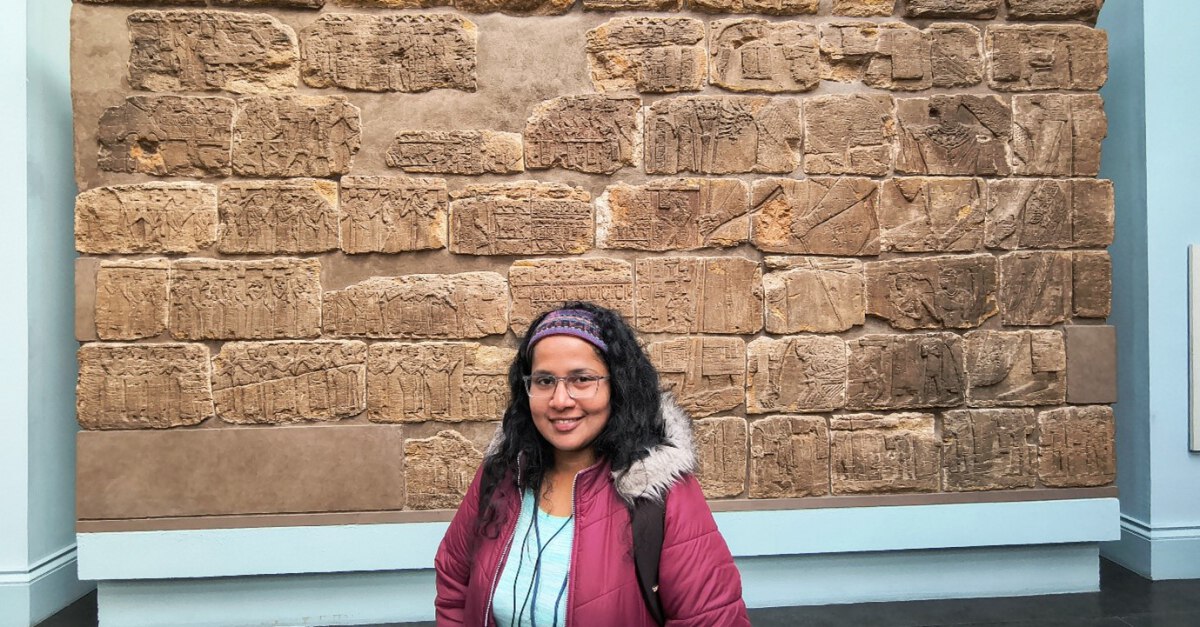Considering reading lists from an EDIA perspective
23/09/2024

In support of National Inclusion Week, and as a member of the Library Services’ Equity, Diversity, Inclusion and Accessibility (EDIA) working group, I wanted to share some of our thoughts about our print and online collections. Specifically, how we can reflect a wide range of voices, cultures, and experiences, and look beyond traditional biases that have often shaped academic spaces.
Library Services is committed to promoting EDIA as well as decolonising our resources. We believe libraries should serve everyone in the community by offering materials representing diverse human experiences. This means considering:
- Including works by authors from underrepresented groups, ensuring perspectives from different racial, ethnic, gender, and socio-economic backgrounds are well represented.
- Providing multiple viewpoints on key topics, rather than relying on a single dominant perspective, via a diverse collection of resources
- Making sure that students can find resources that reflect their own identities and experiences.
Decolonising the Library means more than just adding diverse materials. It is also about:
- Being able to assess our collections and identify gaps where voices from Indigenous peoples, the Global South, or other marginalised groups have been left out.
- Including materials that challenge traditional narratives shaped by colonialism and offer resources that critically examine these histories.
- Creating space to encourage conversations about historical inequalities and their lasting effects.
With this focus on EDIA and decolonisation, we aim to create a more inclusive, diverse, and reflective learning environment for everyone.
What is decolonisation?
“Decolonisation involves identifying colonial systems, structures and relationships, and working to challenge those systems. It is not “integration” or simply the token inclusion of the intellectual achievements of non-white cultures. Rather, it involves a paradigm shift from a culture of exclusion and denial to the making of space for other political philosophies and knowledge systems. It’s a culture shift to think more widely about why common knowledge is what it is, and in so doing adjusting cultural perceptions and power relations in real and significant ways” (Keele University, 2018)
Decolonising the curriculum in STEM, as well as in social sciences, is important because it challenges the dominant narratives that often exclude contributions from non-Western cultures and marginalised groups.
STEM subjects are often seen as neutral, but their origins are shaped by specific historical and social contexts. It’s important to ask how and why these theories were developed, and by whom. Inclusivity involves recognising the diverse contributors to these fields, ensuring previously excluded voices are acknowledged (Fernandes, 2021).
What you can do to help us
We would like to encourage anyone involved in teaching to examine their reading list. We obviously give priority to items on reading lists so having more diverse sources on reading lists will in turn improve the diversity of our collections.
The University of the Arts London has developed a toolkit (UAL, 2021) to help people decolonise their reading lists. Here is a summary of the suggestions:
1. Engage with Library staff for support
Each course has a dedicated Librarian working with the course team and students. They will be happy to assist you in finding information and ensuring that resources are purchased and made available.
2. Question your reading list
- What are the dominant voices in your areas of study?
- Whose voices or perspectives are excluded or marginalised?
- Are bodies of knowledge distorted? Can discourse affect the way that we look at groups of people?
- Who is the author of the work? Are the majority of the authors the same gender and ethnicity?
- What is the relevance of the author’s identity in this context?
- Who is talking about whose experience and/or culture?
- What is the place of publication and geographic coverage of the text?
- What is the language of the text? Is it a translation or in its original language?
- What kinds of sources do we perceive to be of more academic value and why?
3. Find the marginalised voice
Mainstream publishing frequently favours well-established academy members, and we are aware that certain groups are under-represented overall and especially among staff members of colour. This is gradually changing but it’s critical to stay up to date on both new and current research produced by scholars of colour.
It is important to acknowledge that a small group of publishers, mainly located in the US and the UK, publish the great majority of the content used in academia. Publications written in English will always be more prevalent, which further solidify the dominance of the Western-centric viewpoint.
Think about utilising a greater range of media outlets, as they frequently provide a platform for emerging voices.
4. Co-create with students
Sector research on closing awarding gaps via curriculum development states that ‘it is vital that any reviews are undertaken in partnership with students’ (NUS and Universities UK, 2019, pp 47-8). There is a host of additional literature you can access on student partnership working and curriculum co-development.
Here are some points to consider:
- Reflect on what training, preparation and guidance students need to effectively participate in curriculum decolonisation.
- Agree how to do this, be that alone, with librarians or with academics.
- Think about what will incentivise students, in particular those who are disengaging as a result of their marginalised identities, to participate in curriculum decolonisation work.
- Reflect on what opportunities exist to embed reading list review and decolonisation into the assessed curriculum. Consider whether this can be aligned to learning outcomes and assessment criteria.
You might also want to consider running some activities with your students to stimulate further discussion:
- Create Staff-Student discussion areas of exclusion, and alternative narratives.
- Ask students to critique the reading list and suggest new content from their own research and experience.
Resources
We’ve compiled a list of resources on decolonisation that you may find useful. If you have any recommendations for further readings, you can email your suggestions to library@cranfield.ac.uk.
- Decolonisation reading list for books and articles
- Decolonisation reading list for databases
- National Inclusion Week 2024 -reading list
- Equity, Diversity and Inclusion at Cranfield
- National Inclusion week 2024 : events at Cranfield
References
Fernandes, M. (2021). What does decolonising the curriculum mean for STEM subjects?. Compass: Journal of Learning and Teaching, 24(2). https://doi.org/10.21100/compass.v14i2.1230
Keele University (2018). Keele Manifesto for Decolonising the Curriculum. https://www.keele.ac.uk/equalitydiversity/equalityframeworksandactivities/equalityawardsandreports/equalityawards/raceequalitycharter/keeledecolonisingthecurriculumnetwork/#keele-manifesto-for-decolonising-the-curriculum
NUS and Universities UK (2019). Black, Asian and minority ethnic student attainment at UK universities. https://www.universitiesuk.ac.uk/sites/default/files/field/downloads/2021-07/bame-student-attainment.pdf
University of the Arts London (n.d.). AEM Toolbox. https://www.arts.ac.uk/__data/assets/pdf_file/0021/201936/Decolonising-reading-lists-PDF-703KB.pdf
Categories & Tags:
Leave a comment on this post:
You might also like…
From passion to purpose: My journey at the Pinnacle of Aviation
By: Sultana Yassin Abdi MSc Air Transport Management, Current Student Born and raised in the vibrant landscape of the UAE, with roots stretching back to Somalia, my life has always been ...
From Sri Lanka to Cranfield: How a Commonwealth Scholarship transformed my environmental engineering journey
Hi, I’m Kavithanjali Uthayashangar and I’m here to tell you about my journey into environmental engineering. It began with a simple but powerful motivation: a desire to understand how engineering can ...
Celebrating excellence: Cranfield’s first Student Funding Team Celebration Event
On Wednesday 21 January, the Cranfield Student Association (CSA) played host to a significant occasion: our first-ever Student Funding scholarship celebration. Hosted by Diane Blything (Assistant Registrar) and Gill Ireland (Student ...
Aligning my passion and my career at Cranfield University
I’ve learnt to be flexible and try new things – you never know where it could take you to! Hello! My name is Sophie and I’m studying MSc Air Transport Management. Why did ...
From Sri Lanka to Cranfield: How a Commonwealth Scholarship transformed my environmental engineering journey
Hi, I’m Kavithanjali Uthayashangar and I’m here to tell you about my journey into environmental engineering. It began with a simple but powerful motivation: a desire to understand how engineering can ...
Inside the Air Transport Management MSc: Classes, assignments, and group project work
What’s it really like to study Air Transport Management at Cranfield? Adit walks us through a typical day, assignment expectations, and the excitement of hands-on group projects. This is the second of three blog ...





